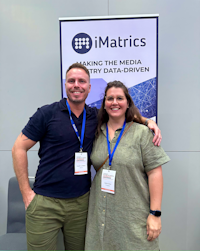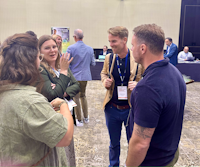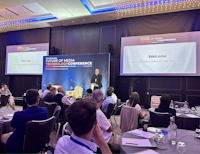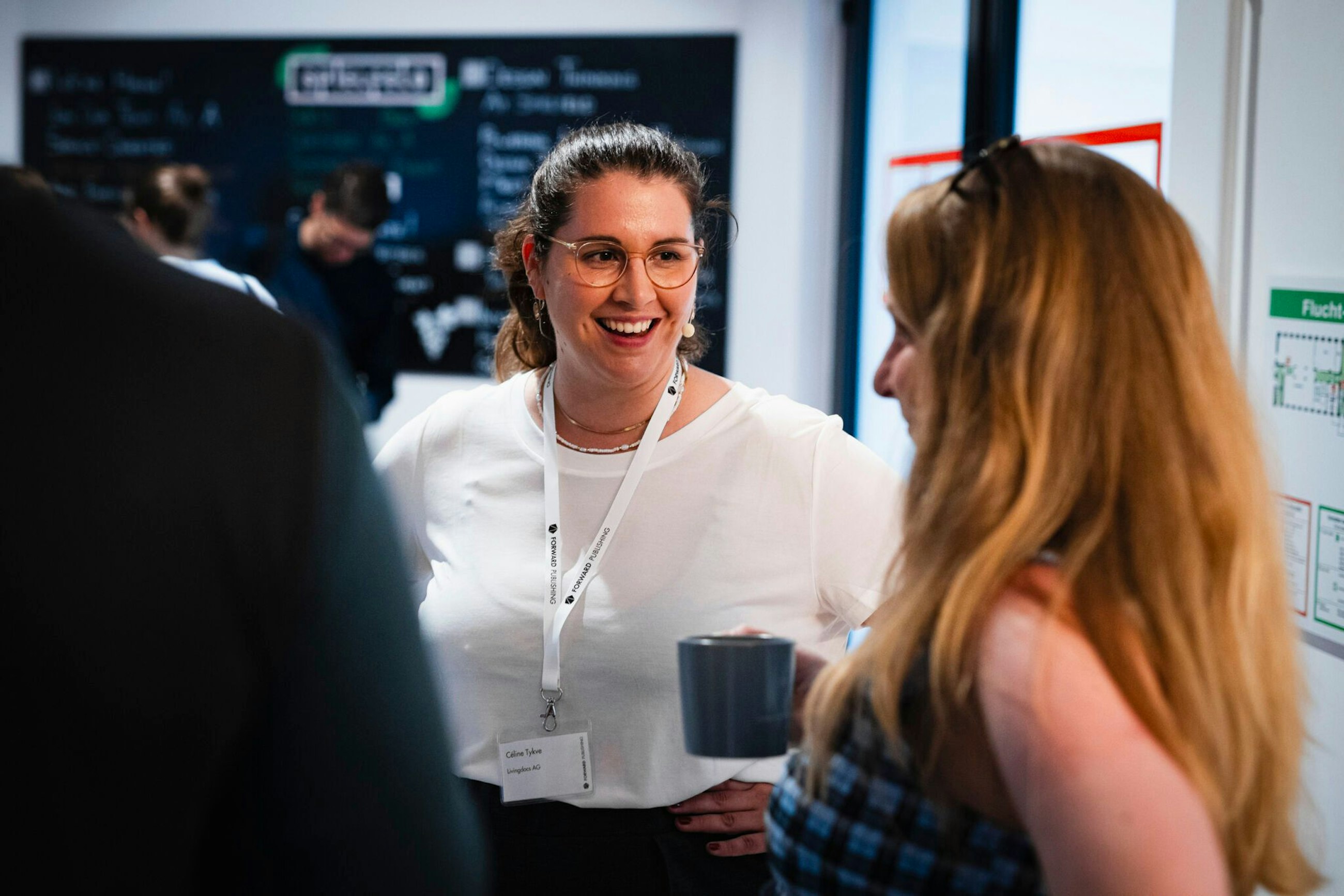
AI, Innovation and the Future of News Publishing: Key Takeaways from Recent Industry Events from Our Head of Business
As part of our commitment to fostering inspiring, productive conversations within our community, we are taking a new approach and sharing our personal perspectives on the news publishing industry and our position in it through these letters from the leading voices of Livingdocs.
Last month, I had the pleasure of representing Livingdocs at two major events that were centred on the current state of the news publishing and digital media industry: Press Gazette’s Future of Media Technology Conference in London and the Forward Publishing Forum in Berlin. These back-to-back events presented the opportunity not only to connect with members of our customer and partner network – like Aschendorff Media Group and iMatrics – but also to get inspired by industry innovators sharing the latest information on the most pressing issues affecting publishers working in the digital realm today.
As a passionate life-long learner who believes that curiosity and critical thinking is necessary for growth (both professional and personal), I would love to share my top takeaways from these two events with you:
-
In connection with the ever-present subject of AI, originality and the role of journalism/journalists in content creation were among the most discussed topics. Whereas perspectives regarding which steps in the content production could be replaced or supported by generative AI differ vigorously, there seems to be a consensus that audiences value truly original formats like live-blogging and tickers more than ever. These up-to-the-minute approaches are experiencing unprecedented demand. To make these highly linear formats even more attractive, some news publishers have made use of AI to accumulate data in the background or add enhancements in the UX. These could be great ways to incorporate AI into content formats without sacrificing their originality. Livingdocs’ “hot off the press” ticker feature can support you with that.
-
Despite the heavy focus on AI during these events, real use cases by publishers in their newsrooms were noticeably few and far between. Could it be because most generative AI is not as sophisticated as many assume? While ‘AI’ may be a sexy topic (or scary, depending on your perspective), the implementation of it seems to fall into the realm of discussions on paper rather than in valuable production. In order for the industry to truly benefit from this technology, we believe that those using it should be more open to sharing the learnings from these experiments and iterate upon them rather than guard the information for fear of "giving away knowledge".
-
The AI question, and that of digital transformation in general, also touches on another strong fear: the fear shared by many journalists and editors that generative AI could make them partially if not fully redundant. While I see AI as a powerful helper, I truly believe that humans will not be replaced by machine learning tools any time soon. At Livingdocs, for example, we venerate the importance of the human in the equation while incorporating AI-supported tools for more tedious, repetitive tasks – like the iMatrics metadata auto-tagging solution – to make said humans' lives easier and free up their time and energy for more creative activities that call for critical thinking.
-
Adaptation is not limited to AI; publishers must adapt the way content is presented for social media and Big Tech algorithms, as well as for specific audiences they are trying to reach. In order to do this, publishers must be present on various platforms using a multi-channel approach to connect to a greater variety of audiences; in short they must diversify. However, with the life of print news on the decline in the era of continuously-changing algorithms, it is mission-critical for publishers to have a strong brand and offer innovative digital products for an audience that is at once increasingly demanding while exhibiting a decreasing level of patience when it comes to content engagement. In short: publishers’ business models and product portfolios must adapt and be diversified to include their own digital products. At Livingdocs, we support our customers in this area by facilitating the creation of digital products, like a Digital Edition. See how we helped Süddeutsche Zeitung when it came to their premium product, the Digitale Ausgabe.
-
In the end, this comes back to a crucial topic: Culture, Innovation and the Culture of Innovation. True innovation happens when the shared culture of a company starts to shift and becomes more agile. My advice for publishers is to start listening to everyone in the team, look at all your data and most importantly, take every single one of your readers seriously.
Recent Event Impressions
Future of Media Technology Conference
In sum, it is safe to say that AI is definitely here to stay and its impact will be felt by all of us, across industries.
For the publishing industry, we believe in the immense potential of AI especially in the areas of predictive analytics that inform the content creation process at the initial level of planning and idea generation.
Another strong use case with potential that we see is monetising archives and enhancing search with AI. Why not use what you have lying around? This could also be an option to explore for publishers who are hesitant or uneasy to actually focus on experimenting and learning rather than just assessing risks and possibilities. And we at Livingdocs would love to support you with that.
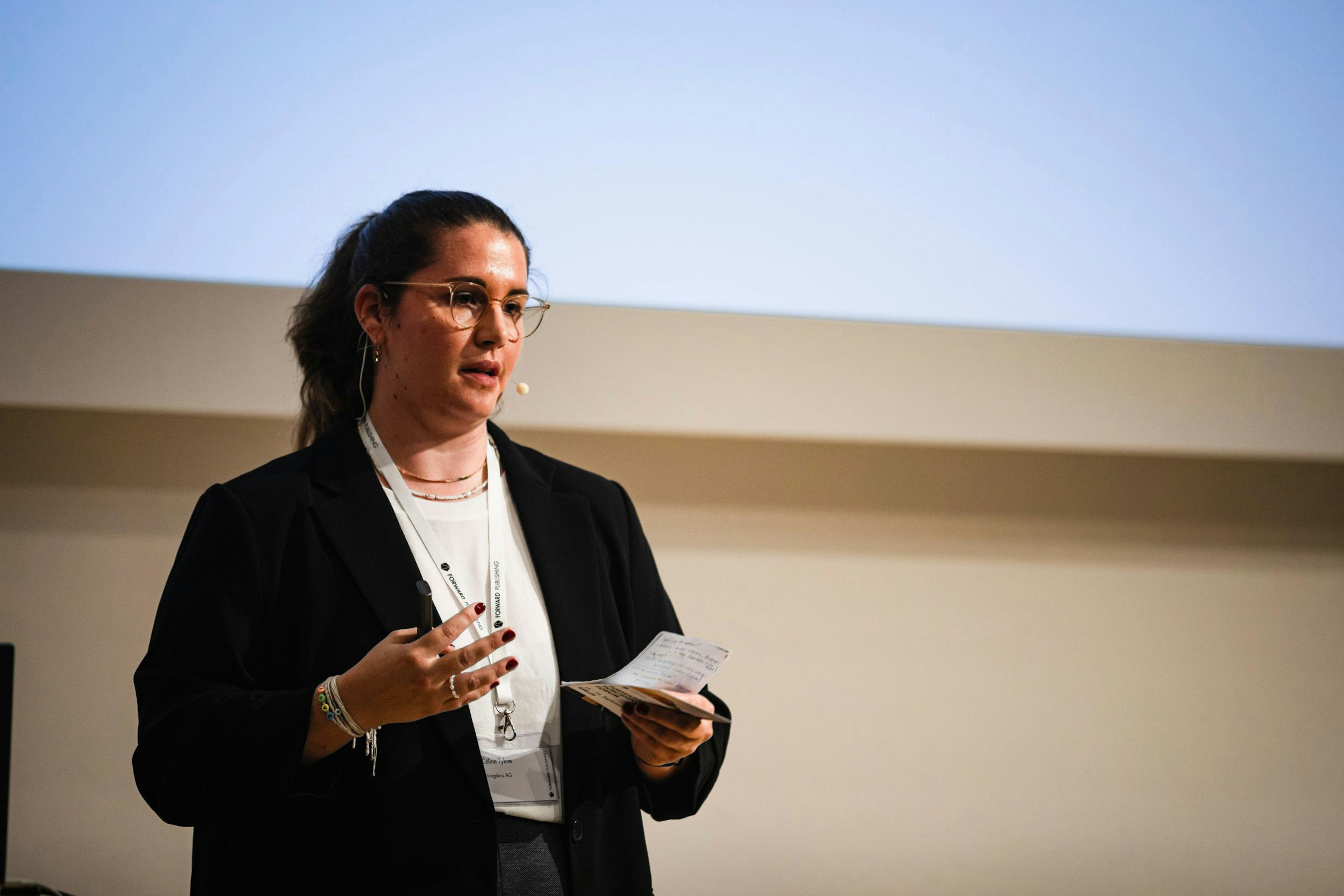
Presenting at this year's Forward Publishing Forum
At Livingdocs, our business strategy is dynamic and based on active, ongoing dialogue with our respected customers and partners. We don’t operate in a vacuum. We build our product based on the real issues news publishers face as they evolve. And from my perspective, while there may be many challenges, there are just as many solutions.
I am excited for the next opportunity where I can engage in these kinds of enlightening conversations and mix and mingle with fellow professionals working in this fascinating field.*
To end this on a personal note, I would love to invite you, our community, to share your thoughts, worries, use cases and experiments, so that we may learn from and with you. Please feel free to reach out to me directly.
I look forward to what conversations lie ahead!
Yours sincerely,
Céline
